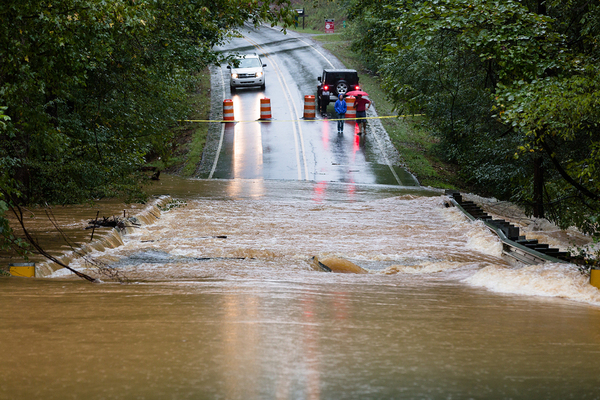THE WORLD’S #1 EXECUTIVE COACHING AND BUSINESS COACHING BLOG SINCE 2017.
Why Outstanding Leaders Prepare for Crisis Well Before It Happens
October 15, 2019 | Category: Blog, Intelligent Leadership | Last updated on: July 2, 2023
Leading in crisis requires drawing upon just about every leadership skill.

Natural or human-made: disasters have the potential to cripple businesses.
The leaders who are most effective in crisis are the ones who make sure everyone is prepared, even when there is no crisis on the horizon. Some preparation is administrative, like ensuring that you have adequate insurance coverage. But other types of crisis preparation are less straightforward. After all, the nature of a crisis is that it’s unpredictable.
The greatest leaders prepare for a crisis to the best of their ability, and they help their teams prepare for crises as well. It’s not easy, and it’s not convenient. But should the worst happen, you and your teams will be grateful for having gone through preparatory steps.
You Must Consider the Worst-Case Scenario
Whether it’s a hurricane, blizzard, or major cybersecurity incident, you must plan for the worst, and you can’t take for granted that disasters will be balanced out by periods of crisis-free time. The Roman emperor Titus only reigned for two years, but during that time Mt. Vesuvius erupted, a large part of Rome burned, and there was an outbreak of plague. Don’t assume that crises will be rare or spread out.
In other words, if your business is in a state that has a history of being hit by hurricanes, plan as if you’ll get multiple direct hits from Category 5 storms. This will prevent everyone from being placed into “reaction mode” during a crisis, causing them to make mistakes that worsen the situation. As much as possible, you want your response to a crisis to be a procedure rather than a series of reactions.
Education, Training, and Practice
You must educate leadership about crisis preparation. In fact, I believe that leadership development programs should spend time on the type of leadership required during crises, including crisis preparation. Every employee should receive training on what they can expect in the event of a disaster and the resources that may be made available to them (such as alternate forms of transportation).
And yes, you should practice crisis response. It will never be convenient to do this, but there is no substitute for practice. Coordinated, supervised activities help you gain familiarity with your response plan, identify flaws in it, and help you correct them. Furthermore, if a disaster plan requires the use of special equipment, you have the opportunity to make sure it works as expected. For example, the mock “snow day” where personnel must work remotely by logging into the company network gives everyone the chance to see how it plays out and address problems in a “safe” scenario.
Practicing for a crisis will never be convenient, but it is the best way to measure your level of readiness.
Additional Tips for Coping During a Crisis
- Redundant systems and redundant skills are necessary for adequate crisis management. More than one person should be trained for every crisis response role.
- Appoint a spokesperson well before disaster strikes. Having an official “face” of the company to handle media will prevent distractions and help your company deliver a unified message.
- Avoid the temptation to use a major crisis as a platform for self-promotion. Not only does grandstanding distract from the important tasks at hand, but it’s also simply unprofessional.
- Always conduct a postmortem after a crisis has been addressed. Ask your crisis team what they learned from the incident and what unexpected problems arose. This helps you be better prepared next time.
Nobody wants to be the leader who was caught unprepared when disaster strikes. At the same time, crisis preparedness can be dull and tedious, yet it is just as necessary as managing your finances and your employees. Practicing your plans by holding mock disasters can throw a wrench into ordinary operations, but it can make the difference between successfully handling a crisis and being completely overwhelmed by it.
Executive leadership isn’t always about ensuring maximum productivity and meeting milestones. Sometimes it is about preparing for problems that are difficult to anticipate and that pose serious threats. It takes an outstanding leader to seriously address crisis preparation and response and to risk the groans from teams when you carry out a disaster drill.
But it only takes one disaster to show the immeasurable value of executive leadership that is fully prepared. If you’re interested in learning more about leadership, I invite you to check out my books. I also hope you will be on the lookout for my latest book, The Intelligent Leader, available today October 15.



